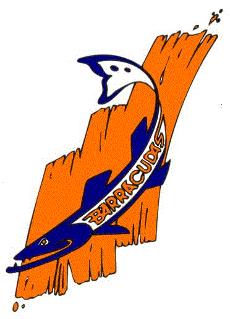| December 4, 2020 RE: Potential COVID-19 exposure to swimmers and coaches of Prince George Barracuda Swim Club A family member within one of our swim families of the Prince George Barracuda Swim Club ("PGBSC") has a lab confirmed case of COVID-19, confirmed December 3, 2020, resulting in potential exposure for swimmers and coaches who may have been in contact with swimmers from this family prior to December 2, 2020. To be clear, at this time we are NOT aware of any swimmer having tested positive for COVID-19. Out of an abundance of caution, the Board would like to provide members with this information on a proactive basis. We have contacted Northern Health COVID Hotline, and requested their guidance as to the implications of this potential exposure for the club and continued swimming and they have advised us that any swimmer who does not display symptoms is not required to make any changes to their activities. All should self monitor carefully for a period of 14 days from the last potential exposure date. NH do still have to do their contact tracing process related to this case. If there is more information to share once that is completed, it will be. PGBSC has a COVID-19 safety plan in place. We have no reason to believe the safety plan was not followed precisely. We recognize that learning of a potential exposure to COVID-19 may cause concern for families, and we hope to address some of those concerns with the following information. COVID-19 is spread by respiratory droplets, when a person who is infected coughs or sneezes. If you are in close contact with an infected person, the virus can enter the body if droplets get into the eyes, nose or throat. It can also be spread when a healthy person touches an object or surface (e.g. a doorknob or a table) with the virus on it, and then touches their mouth, nose or eyes before washing their hands. Exposure to a confirmed case does not mean you or your child will become sick with COVID-19. COVID-19 has a very low infection rate in children, and most are not at high risk. It is expected to see COVID-19 cases in various community settings. The risk of transmission becomes more significant if someone is considered a close contact. NH public health staff follows up directly with anyone who is identified as a close contact of a lab confirmed case. It is important to note that a close contact is a person who has been in direct, face-to-face contact for prolonged periods of time with an infectious case. People with COVID-19 are considered contagious (infectious) from 48 hours before onset of their symptoms (before they may realize they are sick), up until 10 days after their symptoms began. More information on the definition of a high-risk close contact, can be found here: http://www.bccdc.ca/health-professionals/clinical- resources/case-definitions/covid-19-(novel-coronavirus) If you or your child has no symptoms and you have not been informed personally by public health that they are a close contact and should self-isolate – you and your children are not required by BC Health orders to self-isolate. However, please take extra care to monitor your child/children for symptoms until December 15th, 2020 midnight (which is 14 days from the last date of possible contact with the swimmers from this family). Testing is not recommended or needed if you or your child has no symptoms because it is not accurate or useful when a person has no symptoms. If you or your child develops symptoms, a health assessment is recommended via your primary care provider or by calling Northern Health's COVID-19 Information Line and Online Clinic at 1-844-645-7811. If you are identified as a close contact, you will be contacted directly by public health, and supported in any actions you need to take (such as self-monitoring, or self-isolation). If you are not identified as a close contact you will not be contacted directly, as the risk of infection is very low. That said, everyone is encouraged to monitor yourself and your children for symptoms. Testing is available for anyone with COVID-19 symptoms, however mild. The most common symptoms of COVID-19 include: - Fever
- Chills
- Cough or worsening of chronic cough
- Shortness of breath
- Sore throat
- Runny nose
- Headache
- Fatigue
- Diarrhea
- Loss of appetite
- Nausea and vomiting
- Muscle aches
- Loss of sense of smell or taste
While less common, symptoms can also include: - Stuffy nose
- Conjunctivitis (pink eye)
- Dizziness, confusion
- Abdominal pain
- Skin rashes or discoloration of fingers or toes.
http://www.bccdc.ca/health-info/diseases-conditions/covid-19/about-covid-19/symptoms If you or your child have symptoms, please call your Primary Care Provider or the Northern Health Virtual Clinic for an assessment and testing: 1-844-645-7811 If you or your child has symptoms, please see do not send your child to swimming. There are many things you can do to prevent the spread of COVID-19 in your community. Please visit the BCCDC website for more information: www.bccdc.ca. Stay Safe, Kerim M. Özcan, President Cindy Thomson, Treasurer Prince George Barracudas Swim Club | 